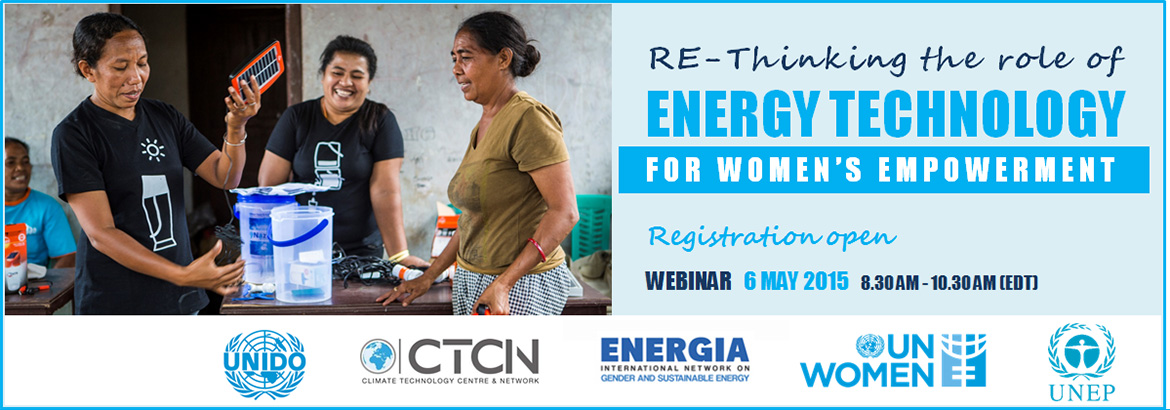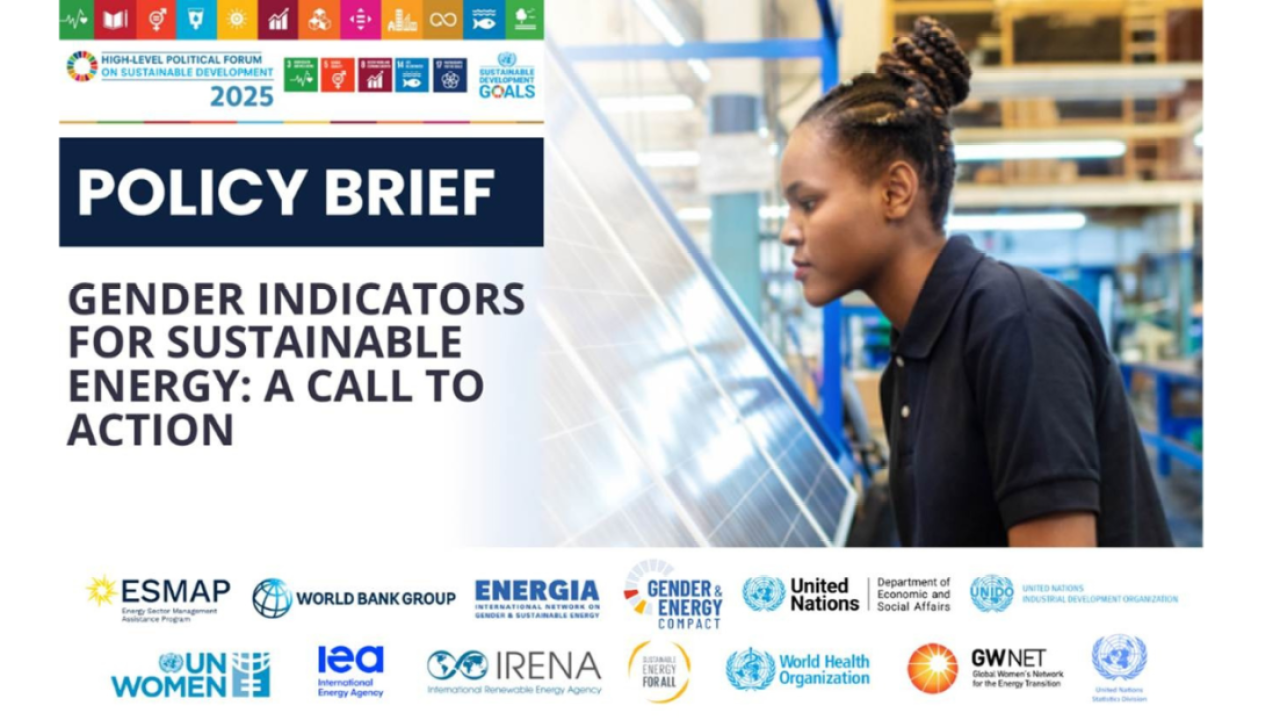Women’s knowledge and experience in relation to the use of appropriate energy technologies are not being taken into account and, as a result, their potential as agents of change in driving innovative climate change responses remains untapped.
This was one of the issues discussed during a webinar organized on 6 May 2015 by the United Nations Industrial Development Organization (UNIDO) in cooperation with EmpowerWomen.org, the Climate Technology Centre and Network (CTCN), UN Women, and ENERGIA.
A recording of the webinar, presentation slides and the summary document can be downloadedhere.
Moderated by Alois Mhlanga from the UNIDO Energy Branch, the webinar brought together experts and entrepreneurs in the field of sustainable energy to reflect on the role of energy technologies in empowering women. Joy Clancy from the University of Twente, and Ondina da Barca Vieira from UN Women in Mozambique, together with Wandee Khunchornyakong, head of the Solar Power Company Group (the largest solar power generation company in Thailand), and Monica Christy, representing Ibu Inspirasi, the initiative of Kopernik, an Indonesia-based non-profit organization, discussed their experiences with energy technology.
The panellists agreed that women often lack access to technologies and/or finance, as well as to information and training about appropriate technologies and their use. Their voices as regards energy and technology needs are very rarely heard, and therefore related decisions and chosen technology options have an inadvertent male bias and are often gender-blind. Although women have a broad body of knowledge and experiences in the use of technologies, which are appropriate for their particular situations, this knowledge is often neither recognized nor relied upon.
In order to change this situation and foster women’s empowerment in the sector, panelists recommended acceptance of the need to recognize and accept different working styles – for instance, women’s preference for cooperative models of working – and to focus on simple innovations that are affordable, durable, easy to use and maintain, eco-friendly, money-saving and life-changing.
Other recommendations included the need to improve access to credit; help men recognize women’s empowerment as a positive development; involve local women’s groups; provide gender-disaggregated data; and let women participate in policy-making.
Some of the more than 170 participants in the webinar – coming from over 90 countries – contributed with questions and comments that underlined the importance of ensuring women’s involvement in decision-making and the integration of gender dimensions in policy dialogues. They also addressed critical issues related to cultural barriers, education, access to finance and profitable business models.
UNIDO recognizes access to sustainable energy for productive uses as a key catalyst for inclusive and sustainable economic development. In particular, UNIDO focuses on the role of women as agents in promoting and using climate technologies and renewable energy solutions – recognizing that women can take the initiative and play a key role in driving innovative actions to abate greenhouse gas emissions and reduce the risks posed by climate change.
This post originally appeared on : http://www.unido.org/
By Katharina Proestler







